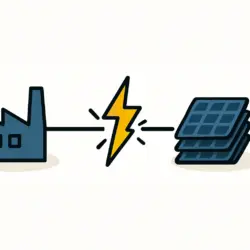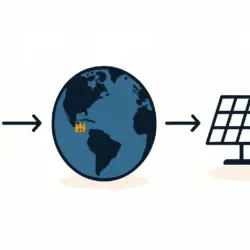The World Bank has approved a US$200 million loan for El Salvador to expand its geothermal energy capacity and enhance its electricity infrastructure. The project aims to increase the country’s renewable energy output, improve resilience in the electricity grid, and support economic growth.
Boosting Geothermal Capacity with the El Salvador geothermal project
The project will focus on expanding El Salvador’s geothermal energy generation, with plans to add up to 60 MW of installed capacity. This expansion is expected to enhance the country’s energy security and reduce its dependence on fossil fuels. Currently, geothermal energy accounts for about 21% of El Salvador’s total installed capacity. The project will also support the construction of a new transmission line to improve the reliability of the electricity grid. This line, along with related infrastructure, will help prevent power outages and ensure a stable supply of electricity. The World Bank emphasized that improving the reliability of electricity is crucial for fostering economic growth and supporting the country’s development goals. While geothermal expansion is the focus, El Salvador also benefits from strong solar potential, with an average yearly PV output of 1680 kWh/kWp as noted in this report.
Impact on El Salvador’s Economy from the geothermal project
The World Bank’s loan is part of a broader effort to support El Salvador’s energy sector and promote sustainable development. The expansion of geothermal energy is expected to have a positive impact on the country’s economy by reducing energy costs and attracting new investments. In addition to boosting energy production, the project aims to create jobs and stimulate economic activity. The construction and operation of new geothermal plants and transmission lines are expected to generate employment opportunities and contribute to the country’s economic recovery. The World Bank’s support for El Salvador’s geothermal energy expansion comes at a critical time for the country. The COVID-19 pandemic has put significant strain on El Salvador’s economy, and the government is seeking ways to stimulate growth and create jobs. The expansion of renewable energy is seen as a key strategy for achieving these goals.
El Salvador’s Commitment to Renewable Energy via geothermal project
The government of El Salvador has made renewable energy a priority in its development plans. The country has set ambitious targets for increasing its share of renewable energy in the electricity mix, and the World Bank’s support is expected to play a crucial role in achieving these goals. The project is also aligned with El Salvador’s commitments under the Paris Agreement, which aims to reduce greenhouse gas emissions and promote sustainable development. By expanding its geothermal energy capacity, El Salvador is taking a significant step towards meeting its climate goals and reducing its carbon footprint. The World Bank’s investment in El Salvador’s geothermal energy sector is part of a broader global effort to support renewable energy projects and promote sustainable development. The bank has been a leading advocate for renewable energy and has provided financial and technical support to countries around the world.The US$200 million loan will be disbursed in phases, with the first tranche expected to be released in the coming months. The project is expected to be completed within five years, with the new geothermal plants and transmission lines expected to be operational by 2028. The World Bank’s support for El Salvador’s geothermal energy expansion is a significant step towards achieving the country’s renewable energy targets. The project is expected to have a lasting impact on the country’s energy sector, economy, and environment.



